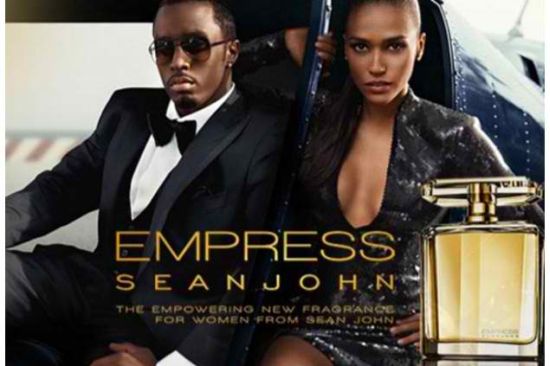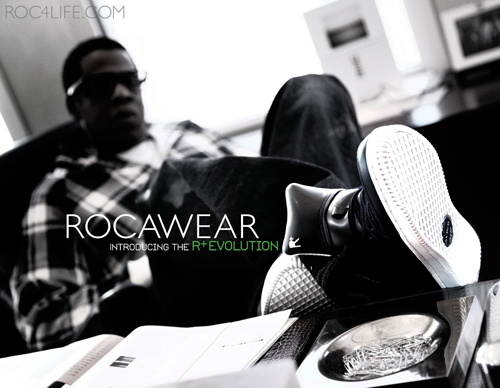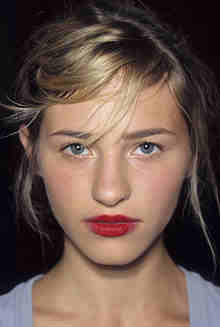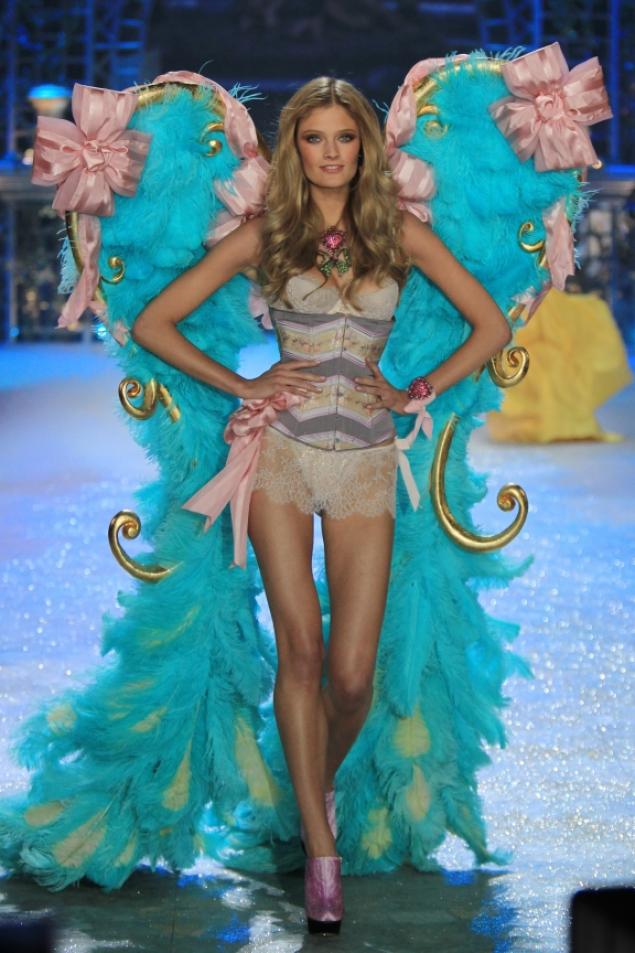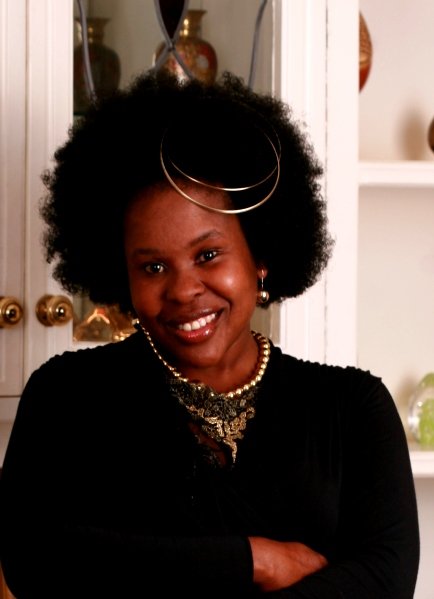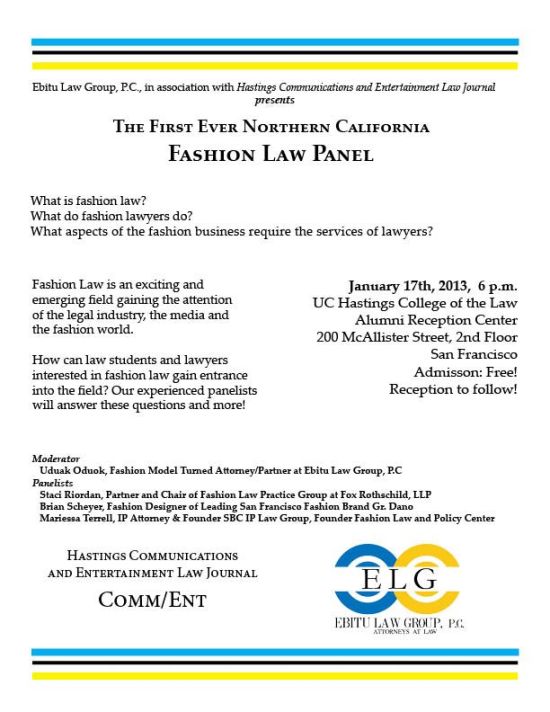 In fashion, your brand name is everything. The integrity and strength of your brand name i.e. your fashion brand is what allows your brand to be highly coveted by potential licensees and for investors to take a keen look at your business for potential investing. Therefore, it is important to protect your name. You do so through what is called “Trademark registration.” The Sean John Empress lawsuit discussed below highlights the reason why you should, as a fashion business, think about registering your trademark if you haven’t already.
In fashion, your brand name is everything. The integrity and strength of your brand name i.e. your fashion brand is what allows your brand to be highly coveted by potential licensees and for investors to take a keen look at your business for potential investing. Therefore, it is important to protect your name. You do so through what is called “Trademark registration.” The Sean John Empress lawsuit discussed below highlights the reason why you should, as a fashion business, think about registering your trademark if you haven’t already.
Below are the facts of the case discussed a little over a month ago, excerpt of which is reported from AllHipHop News:
(AllHipHop News) Sean “Diddy” Combs has been hit with a lawsuit by Empress Haircare Products, over the usage of the name Empress, a perfume created by the Sean John Clothing Company.
Empress Haircare Products filed a lawsuit on January 10 in the United States District Court, Southern District of New York.
According to the lawsuit, representatives for Sean John attempted to file a trademark for the name Empress, even though they knew that a existing trademark had been granted to Empress Haircare Products.
Around February 2010, an attorney for Sean John contacted Empress Haircare Products, in an attempt to obtain the rights to use the trademark, in return for compensation.
Empress Haircare Products declined to enter an agreement with Sean John, and would not grant the rights to use the Empress mark.
Sean John then filed a second application to trademark the name “Empress Sean John,” but the application was also rejected, because consumers could have been confused by the similar names.
Attorneys for Sean John then allegedly contacted Empress Haircare Products, in an attempt to plead their case, claiming there would be no confusion in the marketplace.
Despite the legal issues surrounding the name, the lawsuit claims that the “Empress Sean John Perfume and Lotion” was released and is currently being marketed to the same target consumer as the Empress Haircare line of products. . . AllHiphopNews/January 2012.
AFRICA FASHION LAW™ LEGAL COMMENTARY
For African designers on the continent in markets such as Nigeria, Kenya, South Africa and Ghana, these respective countries have parallel trademark laws that protect your brand names. You should consult with an attorney to get the name of your business trademarked, if you have not already. The same holds for designers in the UK and the USA.
Even more specifically, for USA fashion professionals including designers, here are the basics on Trademark law and what is at issue in this case:
DIDDY DECIDES TO TAKE THE GAMBLE
First, Diddy knew his money could not buy the Empress name. He tried, they rejected it. He also attempted to file with the US Patent and Trademark Office, the office that handles trademark registration in the USA. His application was denied as stated in the news report.
So, what does he do according to the report? He basically takes a gamble and wants to force a jury to make a decision on whether his use of “Empress” is an infringement. As a result, despite the rejection from the USPTO and Empress Hair Care Products owners, Diddy goes ahead and uses the “Empress” name. Does he not know he could be sued? Yes he does, at this point. However, he must have done his cost/benefit analysis and decided to go ahead with the alleged infringement, believing that it will be worth the costs in the long run. Is he right? We shall see. . .
Now on to US Trademark law:
What Law Governs?
First things first, we always want to know what area of the law we are dealing with. In this instance Intellectual Property laws apply. Here, it is subdivided into Trademark Law which is further subdivided into three key statutes/laws that govern our situation.
- Federal law aka the Lanham Act;
- State statutes (law); and
- common law that deals with trademark and unfair competition
What is a Trademark?
It is any:
- Word,
- Phrase,
- Logo,
- Symbol,
- Color, or
- Sound that you use to identify the source of your goods or services and to distinguish them from others in the marketplace.
When You Have a Trademark What Does it Really Mean?
Trademark law essentially says, “look, if you are the first business to use, for example, “Empress” in the marketplace, then ‘Empress” belongs to you and your rights are superior to that of other subsequent users.” If people infringe on those rights, you can sue, hopefully win, so you can recover damages.
“Customer Confusion” is at the Heart of Trademark Infringement Suits
So what you own “Empress”? So what you registered it with the US Patent and Trademark Office? That does not give you a legitimate claim anytime someone uses a trademark that resembles yours. You must, to successfully prevail on a Trademark infringement claim, show that there is a “Likelihood of Confusion” and the public would or have been confused by the subsequent use of someone like Diddy using “Empress,” your trademark.
What’s the Deal? How Does this Likelihood of Confusion Really Work?
Courts will look at whether the subsequent i.e. junior user has a similar product/service to that of the Plaintiff alleging infringement. They will look at the territories that the alleged infringer markets and the intent of the alleged infringer. Courts pay attention to who used the mark first. Empress Hair Care products is making the argument that Diddy is marketing in the same territories to the same customers.
How Do Courts Really Determine Customer Confusion?
The courts weigh 8 factors in a trademark infringement case. They ask:
- What is the similarity of the conflicting marks;
- What is the proximity of the two companies’ products or services
- What is the strength of the Plaintiff’s mark
- What is the marketing channel used by the two companies to market their products/services
- What is the degree of care likely to be exercised by purchasers in selecting goods i.e. customer sophistication?
- What was the defendant (Diddy) intent when selecting the mark
- What is the evidence of actual consumer confusion; and
- What is the likelihood of expansion of product lines
How Does the Court Determine What Qualifies as a Trademark?
The questions that would be asked are twofold:
- Does Empress Hair Care have an inherent distinctiveness in the marketplace? OR
- Has Empress Hair Care been using the mark for a while now so that it has acquired distinctiveness where if the public sees it, they know it is Empress Hair Care?
Outcome of Case
Many times, cases like these do settle. However, the facts alleged here show a bit more defiance on Diddy’s part. This might not help in resolving the disputes among these two parties.
We will see how this case shakes out. In the meantime, if you have a fashion and/entertainment brand, you should protect your brand’s name through trademark registration. Consult with an attorney and also visit the US Patent and Trademark Office website for more information on Trademark registration.
____________________
Ms. Uduak Oduok is the Founder and Editor-in-Chief of Ladybrille® Magazine. An industry insider with almost two decades of hands on extensive experience in the fashion and entertainment industry, she is also a trial attorney (with 10years experience) and has counseled a range of clients from musicians, models, actors and actresses to designers on numerous areas of the law including contracts, business law, fashion and entertainment law, copyright, trademark i.e. intellectual property law. She can be reached at ([email protected]) to share/pitch your Africa Fashion Law™ related stories with her. All other inquiries, please visit the www.ladybrillemag.com/contact for appropriate contact email.
DISCLAIMER: Nothing herein forms an attorney-client relationship. The legal commentary provided is for informational purposes only and is not meant nor should be construed to be legal advice, advertisement, or solicitation for business.
Ms. Uduak is best known as an advocate who uses the tools of media and the law to help creatives and businesses clearly articulate their true brand identities, and communicate it to the world through their products and services, to maximize profits. She is a lawyer, speaker, author, journalist, and recognized thought leader, and trailblazer for her work on Africa’s emerging global fashion and entertainment markets, and the niche practice of fashion law in the United States. She is also the founder and publisher of Ladybrille® Magazine, and an Attorney and Partner at Ebitu Law Group, P.C, where her practice focuses on Fashion, Business, & Entertainment Law and Trials. For more information about her, visit www.msuduak.com.

